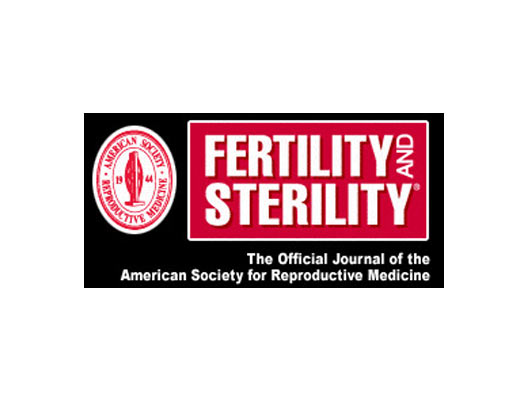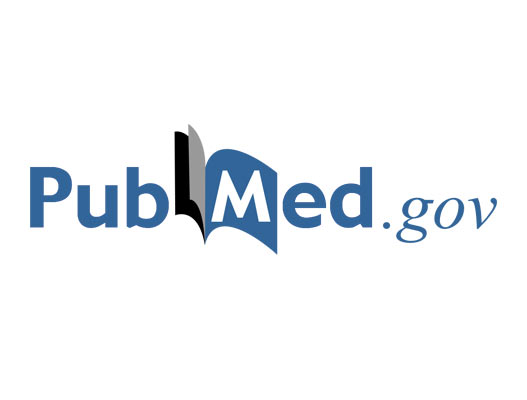Infertility can be caused by endometriosis, an inflammatory condition sometimes accompanied by pain. However, it is nearly always associated with internal bonds called adhesions. People respond to endometriosis-related infertility in a variety of ways. They may opt-out of parenthood, welcome a baby through surrogacy, or start a family through adoption. Women with endometriosis may treat infertility medically through pharmaceuticals or invasive medical procedures such as surgery.
Since 1984, Clear Passage® Physical Therapy has produced extraordinary results for patients with endometriosis-related infertility by decreasing pelvic adhesions, opening blocked fallopian tubes, and significantly increasing the odds of pregnancy with a natural, surgery-free method called the Wurn Technique. In the wake of endometriosis month, Clear Passage® would like to stand with the Endometriosis Association to raise awareness about endometriosis. We promise to continue our fight to reduce or eliminate the adhesions that are often the root cause of endometriosis-related infertility.
About Endometriosis, Adhesions, and Infertility: A Summary
When endometrial tissue that usually lines the uterus is found in other body areas, the result is an inflammatory condition called endometriosis. Endometrial tissue swells during every menstruation, even when it is found outside the uterus. The inflammation that accompanies this swelling can cause bands of scar tissue called adhesions to form. With each menstrual cycle, more and more adhesions can form, eventually resulting in reproductive organs that cannot move or function normally.
Endometriosis symptoms can include:
- Painful periods (dysmenorrhea)
- Pain during intercourse
- Pain during or after bowel movements or urination
- Excessive bleeding
- Infertility
Endometriosis problems can include:
- Fallopian tubes becoming blocked internally and/or externally.
- Decreased ability of ovaries to release an egg.
- Uterine spasms or painful periods that reduce the opportunity for implantation.
Note: Although the symptoms of polycystic ovarian syndrome and endometriosis are similar, they are not the same condition. Visit our Polycystic Ovarian Syndrome page to learn more. We treat a variety of fertility issues. Visit our Infertility Issues page to learn more, including information about pelvic floor physical therapy that can improve overall pelvic health.
What are my options if I am unable to have kids?
People respond to endometriosis-related infertility in a variety of ways. Let’s examine the numerous options.
Opt-Out of Parenthood
People can and do choose to be childless for many reasons. Some have no desire to procreate; others may opt-out of parenthood because of medical issues or finances. Some people are childless because they do not have a partner or their partner does not share in their dream to become a parent. Others choose not to parent because of concern about the state of the world. According to National Vital Statistics Reports cited by Pew Research Center, the general fertility rate in the U.S. was already at a record low before COVID spread across the earth and dropped further with the pandemic and economic crisis.
Choosing to remain childless or childfree is a personal decision that makes the condition of infertility irrelevant. However, pain associated with endometriosis-related adhesions may still cause concern.
Surrogacy
There are two kinds of surrogacy, traditional and gestational.
Traditional Surrogacy
In traditional surrogacy, a woman agrees to be artificially inseminated, and if she becomes pregnant, she carries and delivers the baby to the parent or parents. While she is the egg donor and the biological mother, the surrogate woman does not parent the child.
Gestational Surrogacy
Gestational surrogates are women who become pregnant via in vitro fertilization (IVF) using eggs from the mother or egg donor and sperm from the father or sperm donor. The woman carries and delivers the baby to the parent or parents. She is not biologically related to the baby, and she does not parent the child.
Adoption
The legal definition of adoption is as follows:
Adoption refers to the act by which an adult formally becomes the guardian of a child and incurs the rights and responsibilities of a parent. After the formal process, a legal relationship between child and guardian will have formed. The legal relationship results in the adoptee becoming the legal heir of the adopter. They terminate any legal rights then in existence with the natural parents.
Fertility Medications
Fertility medications, such as clomiphene (clomiphene citrate), can induce “superovulation,” meaning that a woman can produce more than one egg per month. This increase in the number of eggs can increase the odds of pregnancy.
According to Medline Plus, clomiphene can cause uncommon but severe side effects, including:
- Flushing (feeling of warmth)
- Upset stomach
- Vomiting
- Breast discomfort
- Headache
- Abnormal vaginal bleeding
- Blurred vision
- Visual spots or flashes
- Double vision
- Stomach or lower stomach pain
- Stomach swelling
- Weight gain
- Shortness of breath
Invasive Medical Procedures and Surgery
Your provider may suggest treatment involving surgery or other invasive medical procedures for endometriosis-related infertility problems.
IVF procedures involve injections and anesthesia for removing eggs using a needle inserted through the vaginal wall with the aid of ultrasound imagery. Eggs and sperm are fertilized in a lab, and then the embryo is inserted via a tube through the opening of the cervix.
Surgery to open blocked fallopian tubes involves cutting or burning the adhesions blocking the tube. Performed via laparoscopy or open surgery (laparotomy), the procedure is rarely performed for fear of doing damage by cutting or burning the fallopian tube. Reminder, this organ is delicate enough to transport one-celled sperm and eggs.
In a laparoscopy, the physician places the patient under general anesthesia. They then cut several holes (ports) in the body to fill the cavity with a gas and insert other tools, such as a light, camera, and surgical instruments. When adhesions are extensive, the physician may elect to perform a laparotomy, an open surgery that comes with more significant risks than a laparoscopy.
Risks of laparoscopy include:
- Hernia
- Infection
- Blood clots
- Adverse reactions to anesthesia
- Abdominal inflammation or infection
- Bleeding and the potential need for a blood transfusion
- Inadvertent enterotomy–mistaken damage to internal structures
- e.g., blood vessels, stomach, bowel, bladder, ureter
Specific conditions can increase your risk of complications during surgery, including:
- Stroke
- Obesity
- Diabetes
- Smoking
- Seizures
- Drug allergies
- High blood pressure
- Obstructive sleep apnea
- History of heavy alcohol use
- History of adverse reactions to anesthesia
- Medications, such as aspirin that can increase bleeding
- Other medical conditions involving your heart, lungs or kidneys
Clear Passage® Physical Therapy
Clear Passage® therapists use a specialized and highly targeted manual therapy to provide natural, surgery-free treatment for endometriosis-related infertility. The Clear Passage® approach focuses on decreasing or eliminating adhesions that form due to the inflammation caused by endometriosis. The Wurn Technique is a unique, hands-on approach used to unravel the bonds between the cross-links that comprise adhesions.
The extraordinary results of the Wurn Technique have been cited in major medical journals. Here are just a few highlights:
- In a pilot study of infertile women, 71% became pregnant naturally, and 64% had full-term deliveries. 33% of the successes reported second natural pregnancies before the study was published. In addition, 67% (22/33) of women who chose to undergo IVF after Clear Passage® became pregnant after embryo transfer.
- A large study published in 2015 showed a 43% pregnancy rate for women diagnosed infertile with endometriosis. Remarkably, the success rate for opening totally blocked tubes for women with endometriosis was 60%. Women with both endometriosis and totally blocked fallopian tubes had a post-therapy pregnancy rate of 38%. Women with endometriosis who chose to undergo in vitro fertilization (IVF) had a post-transfer pregnancy rate of 55%, which was 1.5 times the national post-transfer average during the study period.
Visit our Endometriosis & Infertility and our Published Studies pages for more details.
Clear Passage® strives to provide our patients with the finest hands-on therapy in the world. We team with each patient and focus 100 percent of our effort on each patient’s goals in a professional but compassionate environment. We are dedicated to obtaining favorable results for each patient and publishing meaningful research that accurately documents our results. We recognize that our team of therapists, researchers, advisors and support staff must practice excellence, kindness and a deep understanding to deliver superior care to every patient.
If you are interested, you can view resources that will help you calculate your chances of getting pregnant from our treatment.
What is Clear Passage® Physical Therapy like?
The Wurn Technique administered by Clear Passage® Physical Therapy is very site-specific to adhesions and endometrial implants.
A Day in Therapy
The usual protocol cited in the published studies consists of 20 hours of therapy spaced over five or more days. Patients often start treatment Monday morning, receive four hours of treatment a day with a break for lunch, and are done Friday afternoon. Other than that, they are free to work, rest, or take a busy lifestyle. Many women set aside these five days as a “special time to help their bodies heal.” View a short video of Clear Passage®️ for endometriosis to learn more.
Highly Trained Experts
Therapists certified to perform this work are experts at palpating and manipulating the body’s soft tissues – where endometrial implants and adhesions generally form. They use data from the patient’s history and direct feedback from each patient during therapy.
Each provider receives extensive training to provide the methods developed over 30 years to deform and detach the molecular/chemical bonds that bind endometrial implants to the underlying structures. In releasing those bonds, the body tends to return to an earlier state of pain-free mobility and function.
Clear Passage® Physical Therapy and Endometriosis Month
During this and every Endometriosis Month, we join the Endometriosis Association and other support groups in raising awareness of endometriosis, especially endometriosis-related infertility and pain. We have a long track record of reducing pain and increasing fertility for women with endometriosis. Whether you are trying to get pregnant or seek some relief from pain, contact us to learn more about how you may be able to avoid drugs and surgery – and achieve your goals naturally.





















